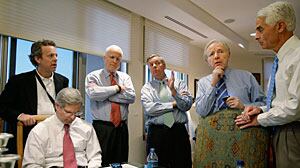
The problem with the Republican Party is there are too many woolly mammoths like me wandering around. It’s time to kill us off. Just slaughter us all.


The problem with the Republican Party is there are too many woolly mammoths like me wandering around. It’s time to kill us off. Just slaughter us all.